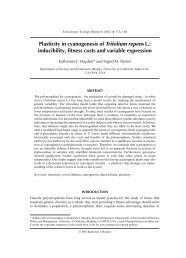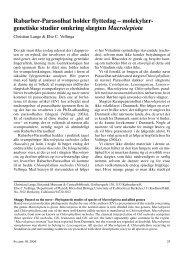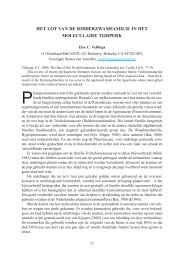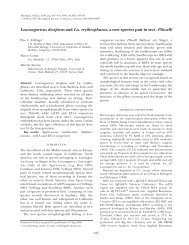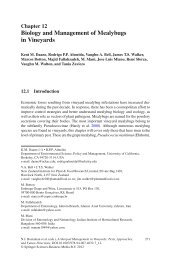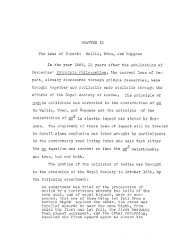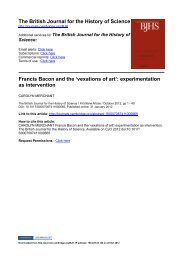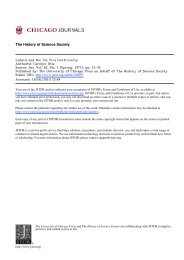K - College of Natural Resources - University of California, Berkeley
K - College of Natural Resources - University of California, Berkeley
K - College of Natural Resources - University of California, Berkeley
You also want an ePaper? Increase the reach of your titles
YUMPU automatically turns print PDFs into web optimized ePapers that Google loves.
everywhere. These robust conclusions also provide guidance for future outbreaks <strong>of</strong><br />
emerging pathogens, particularly those exhibiting a tendency for nosocomial spread.<br />
Our analysis identifies healthcare workers (HCWs) as critical targets for control<br />
efforts. Their status is analogous to high-activity “core groups” in sexually-transmitted<br />
disease epidemics, but the deliberate importation <strong>of</strong> SARS cases from the background<br />
community adds a twist to this established paradigm. HCWs are thus exposed to a local<br />
prevalence much higher than that in the community-at-large, and as a result measures<br />
which reduce transmission within the hospital have the greatest impact on the<br />
reproductive number (R) <strong>of</strong> the epidemic. Hospital-wide precautions (η) have the<br />
strongest effect on R, followed by specific precautions for isolating SARS patients (κ).<br />
This finding is bolstered by the detailed account <strong>of</strong> Dwosh et al. (2003) <strong>of</strong> a<br />
comprehensive and effective response by a community hospital near Toronto. A<br />
dedicated SARS ward was established (under negative air pressure to prevent aerosol<br />
spread to other parts <strong>of</strong> the hospital) and private rooms provided for each SARS patient<br />
(also under negative pressure); these measures correspond to reduced κ in our model.<br />
Intensive barrier and contact precautions were practiced by all hospital staff at all times<br />
(corresponding to η




